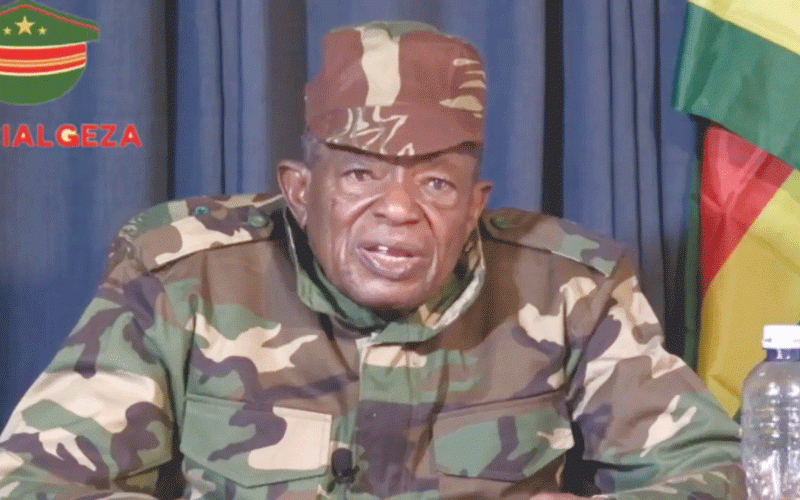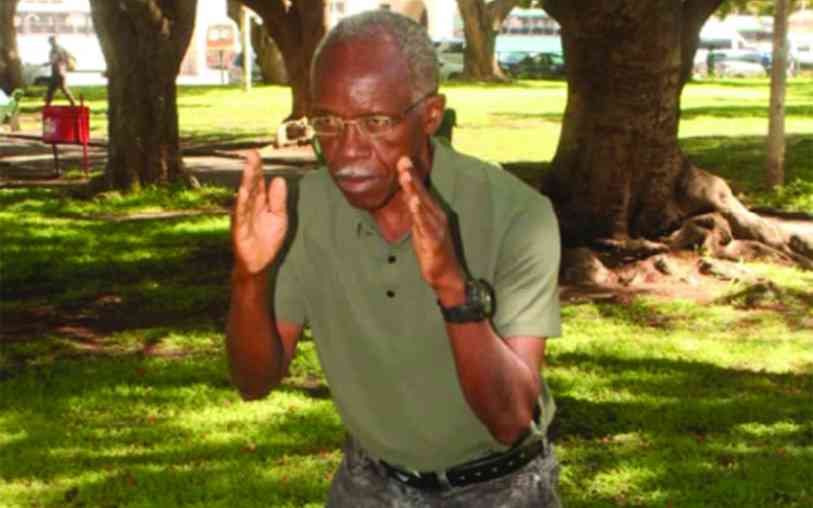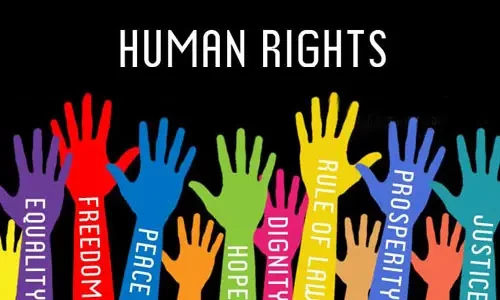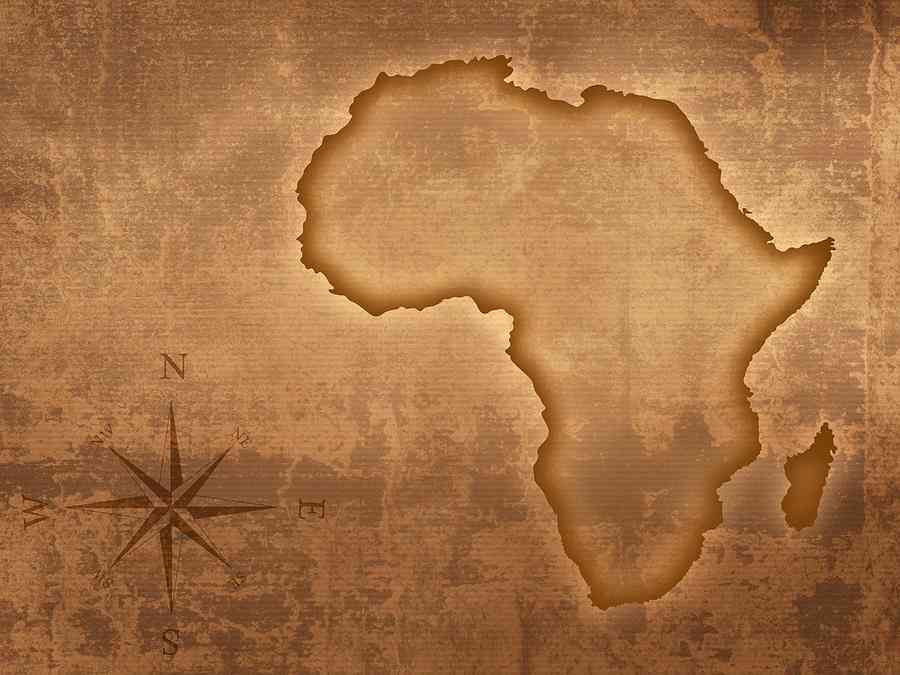
THE recent fallout with the leadership and the “law” of Blessed Geza and Blessed Mhlanga is an affront to the universal respect of human rights.
Freedom of expression is enshrined in the Constitution of Zimbabwe.
It is, therefore, a sacrilege to the values of democracy for government to persecute those exercising this fundamental freedom.
Former Zanu PF central committee member and liberation war veteran Geza is currently on the run for exercising his freedom of expression against leadership.
A long-serving member of the ruling party since the attainment of independence in 1980, with authentic liberation struggle credentials, Geza’s first fallout with leadership was when he stood out to oppose the idea of extending President Emmerson Mnangagwa’s term beyond the constitutional mandate.
Citing mainly rampant corruption within government, Geza was of the opinion that Mnangagwa had failed to lead Zimbabwe.
Rubbishing the prospect of extending the President’s term as a crazy idea, it was also within his viewpoint that even without seeing out his term in 2028 Zimbabwe would fare much better if the President vacated office with immediate effect.
After an interview broadcast on social media handles expressing his disillusionment with the Mnangagwa administration, a warrant of arrest was issued against Geza.
- Cont hero status reignites tribalism debate in Parly
- My critics don’t understand art: Rasta
- Creatives salute ‘Malume’!
- Big send-off for Cont Mhlanga
Keep Reading
He is wanted for saying things “likely to incite violence and civil unrest, threatening national security”.
The poor comrade ran.
Presently pigeonholed in his hideout somewhere, the liberation struggle hero alleges via social media broadcast (in videos looking resplendent in his military fatigue) that the new police boss, Commissioner-General Shepherd Mutamba, had mobilised a team of police and State security agents to “murder” him.
Caught up in the same snare of purges against freedom of expression, Alpha Media Holdings (AMH) journalist Blessed Mhlanga is in detention for televising Geza’s condemnation of leadership on HStv.
HStv is a subsidiary of the AMH group.
Mhlanga’s offence is that of “transmitting material likely to incite violence and civil unrest, threatening national security”.
Mhlanga surrendered himself to the police, got arrested, was charged, denied bail and remanded in prison.
Well, these two cases represent some serious faults within our governance system; from the interpretation of law and enforcement right up to executive leadership or is it vice versa?
In present day Zimbabwe, where restoration of international trust is a key priority after yesteryear’s complete dysfunction of the State, the real concern of State security should otherwise be that of upholding and promoting fundamental human rights and freedoms.
Having citizens hunted down and locked up in correctional facilities for pointing out the mistakes of leadership will not help us to achieve this dream.
We all know, of course, that the biggest threat to national security so far is entertaining the wishful idea of extending the President’s term in office.
And although the idea of impeaching the President can, in practice, be met with difficulties (requiring valid, concrete reasons which presently may not be found with enough sufficiency to justify reversal of the will of the 2023 electorate), dissenting voices like that of Geza still retain the freedom to thrive freely without fear of persecution.
In fact, such voices contribute to promotion of balance of power, where a political atmosphere conducive to progressive growth can endure.
Addressing a gathering at his Precabe Farm in Kwekwe two months or so ago, the President boasted about his success in promoting a thriving opposition in Zimbabwe.
Opposition’s function is to keep the ruling party in check, he said, adding that such would present a convenient advantage for Zanu PF to see (through criticism) its mistakes and rectify them.
But with the recent hounding of Geza and Mhlanga, we can only wonder just how far the President’s position is between word of mouth and practice.
As we stand, progressive national growth requires that we honour the gospel of our State bible — the Constitution of Zimbabwe — in letter and spirit.
In a bold stand against the trumped-up charges levelled against Mhlanga, the Zimbabwe Human Rights Commission (bless the outfit’s integrity) cautioned that the arrest “threatens to drag the nation back to the dark ages, jeopardising its standing in the international community”.
No one needs telling what “dark ages” mean here.
Drawing wisdom from the hallowed articles of the Constitution suppression of freedom of Press and expression is the second biggest threat to State security after toying about with the idea of extending the President’s term.
Instead of going gaga against citizens exercising their rights, it is, indeed, in the best interests of the State to go by the motto on our court of arms and work hard in promoting unity, peace and freedom.
Extending freedom to the people allows characters like Geza to raise key concerns like the rampant corruption we see today so that they can be stopped.
So far given the charges Geza and Mhlanga are facing, it is difficult to fathom the whereabouts of such freedom in Zimbabwe.
In place of serving anything positive, the persecution only serves to remind us of the serious extent to which the top leadership live in fear.
Think of it, if talk of the extension of the presidential term can determine people’s confidence in their leadership, then the prospect of an uprising should be the least of anyone’s worries.
But the interpretation of the term “State security threat” is something that may not be trusted when presented forth by the regime.
Recently, clearance was granted for an armed robbery suspect and a former guest at Chikurubi Maximum Security Prison to access the State House and embarrass the President by telling him a stupid lie that he had invented automobiles fuelled by “remote-controlled radiosonic waves”.
Similarly, the inexorable threat to State security is just that of ignoring State security when persecuting citizens trying to address critical issues of the State security.
If such madness persists, people will find no reason to invest their trust in their government.
Mhlanga’s last court appearance highlighted just how this trust has already been tampered with.
The prison officer escorting Mhlanga from the dock, where bail was denied, had his/her face covered from the cameras.
This, of course, reminds us that the officer was just doing a job, but otherwise didn’t want anything to do with the disgrace in focus. (Meantime pictured walking right in front of the face-covered escort was persecuted Mhlanga, appearing rather unfazed as he looked obstinately straight beyond the eye of the digital camera, mouth pulled in a stern rectus of defiance).
But perhaps, the best highlight of mistrust towards our justice system was well provided by the defence presented by Mhlanga’s lawyer.
Instead of just standing up in defence of freedom of the Press, he rather opted to try securing the freedom of his client by attacking from an alibi defence line.
This so happened even despite Geza’s speech and the “act” of transmitting it, holing no constitutional merit howsoever to qualify liability for prosecution.
The defence becomes, therefore, more like a denial by one accused of breathing, when in turn breathing is not an offence in the first place.
And as long as Mhlanga’s freedom is secured on the premises of an alibi, ultimate victory would still not be his or that of the press.
True victory will still remain with the draconian system.
While the regime would have succeeded in reminding everyone that Press freedom is not tolerated in Zimbabwe, for Press freedom, it would be a big blow worse than jail — the whole national Press intimidated and quarantined with a “peace order” from engaging in objective political talk and debate.
Addressing the same issue of human rights, the ZHRC warned that the arrest of Mhlanga “also detracts from the positive progress Zimbabwe has generally made in upholding fundamental rights and freedoms”.
Such active interest from such a top defending player like ZHRC may only remind us how Mhlanga’s case has become yet another litmus test on Press freedom in Zimbabwe.
Recently, the New York Times reported that the United States’ Donald Trump administration had yellow-flagged Zimbabwe among 22 countries which needed to “address concerns”.
What the word “concerns” means is anybody’s guess and needless to say.
What we know for certain though is that as long as human rights are still being flouted, as long as corruption persists, then there should be no snowball’s chance in hell that Zimbabwe would gain international trust anytime soon.
Just as admonished by the ZHRC, we risk taking our State to the pariah status.
- Charles C Motsi wekwaMareka is a social commentator. He writes here in his personal capacity.











